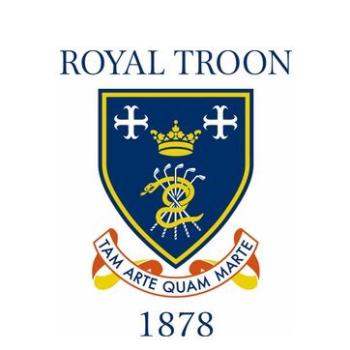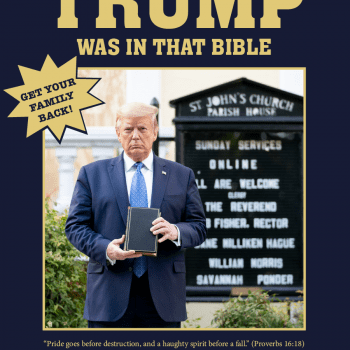The media eventually gave Billy Casper the nickname “Buffalo Bill.” It happened because he had allergies, and an allergy specialist put him on a restricted, unorthodox diet that included buffalo meat. In fact, even now Casper’s website has an image of a buffalo that serves as the logo for his Billy Casper Golf company. It is a business of golf course design, but mostly managing about 140 golf course facilities in 28 U.S. states.
Like his putting stroke, another thing that is unorthodox about Billy Casper is his religion, that is, unless you live in Utah. During the mid-1960s, he was converted to Mormonism, which is called The Church of Jesus Christ of the Latter-day Saints. It was first founded in the northeastern U.S. by Joseph Smith during the early nineteenth century and then transported to the West. For several years, Billy Casper and Johnny Miller gave speeches about their faith testimonies in cities on Tour at Mormon meetings called “fireside chats.” Billy and Shirley Casper further demonstrated their deep devotion to their religious faith by moving their primary residence from Southern California to the center of Mormonism, which is Salt Lake City, Utah.
One of the strongest features of Mormonism is that it is very family oriented. In fact, the concept of family has a major role in Mormon eschatology (the hereafter), whereas it doesn’t in what is considered orthodox Christian eschatology.
Billy and Shirley Casper are heroic parents. After they had three children of their own, doctors told Shirley she couldn’t have any more children. So, they adopted six children. But at age forty, Shirley surprised everyone by having another child and then another. So, they have five of their own and six adopted, making a total of eleven children. The last two adopted boys were Charles (Charlie) and David.
When I played the Senior/Champions Tour, my son Michael caddied for me most of the time. Billy Casper was still playing a limited Senior Tour schedule, and when he played his son Charlie often caddied for him. Sometimes, Michael and I hung out with him in the evenings. Charlie is a rather entertaining character, so he was always good for a few laughs. He told us that he was “the black sheep” of the family. But I think that’s pretty benign.
Billy and Shirley have experienced lots of heartache with their son David, whom I have never met. He has struggled with a severe drug addiction problem. Moreover, he has committed twenty-two armed robberies and is now facing what might be a life sentence in prison due to California’s three strikes law. Billy says he’s a good kid who has made bad choices. David says he doesn’t fault his parents and that they provided a loving family with many opportunities.
Back to the regular PGA Tour, Ed Bonner was the founder and first president of International Management. It was a business management agency for professional athletes. It was similar to Mark McCormack’s larger International Management Group (IMG). Billy Casper became Ed Bonner’s first client on the PGA Tour. Bonner was a very strong Mormon. Mormon Joe Collett worked as an agent for several years on the PGA Tour for International Management. But in about 1980, Collett left International Management and moved his family to Spain to work solely as the personal business manager for Seve Ballesteros. But before he did, Joe and I had some very amicable theological discussions. I found Joe to be the most informed Mormon on Mormon theology, as well as the most patient and considerate in theological discussion, of any Mormon I’ve ever known and talked to about such matters.
Casper and Miller were not the only Mormons on the PGA Tour. I grew up in Seattle, Washington, playing junior and high school golf against Mike Reasor. After that, Mike graduated from Brigham Young University (BYU) and played the Tour in the 1970’s. Sometimes, he and his wife Caron attended the Tour Bible Study. They quite going when they came into disagreement with many of the group’s other members over the meaning of water baptism. Mormons believe like Roman Catholics, many church fathers, the Church of Christ, and the Christian Church, that water baptism is necessary for salvation, whereas nearly all other Christians don’t believe that.
Mike Reid, also a graduate of BYU, occasionally attended the Tour Bible Study as well. I, for one, was glad that an atmosphere existed in our group in which people of different church traditions felt welcomed to attend. But, I didn’t used to feel that way.
In between my home state of Washington and Utah is Idaho, which is pretty strong Mormon country as well. My two closest friends, brothers Jim and Babe Hiskey, grew up in Idaho as Mormons. (Babe has always said, “We were Jack Mormons.” That’s a Mormon who isn’t very serious about it.) Not long after Billy Casper became a Mormon convert, Jim Hiskey suggested to brother Babe and me that we ask Billy if he would like to host the PGA Tour Bible Study in his home in San Diego during the San Diego Open. Wow! We thought Jim was nuts. We had been taught that Mormonism was a “cult” (a word which actually has two rather opposite meanings). Fundamentalist Christians as well as most Evangelicals Christians regard Mormonism as aberrational and therefore non-Christian. That’s despite the fact that Mormons profess to be Christian and name their church after “Jesus Christ.” Most of the regular members of the Tour Bible Study would have been properly classified as Evangelicals.
Over the years, my attitude changed toward people in Mormonism, Jehovah’s Witnesses, and other groups in that I became more religiously tolerant. I think I benefited from my many encounters talking with them not only regarding my becoming a better defender of my Christian faith. There have been especially two things that I think I have learned from such interchanges.
First, sometimes I discovered that I was misinformed about what these so-called “cultists” believed. That also was the case with some of the books on this subject that I had in my library which were authored by supposed Christian experts. For example, many of these authorities assert Mormons believe that Adam–the first man according to the Bible’s Genesis account–was actually God. So, one time I asked Johnny Miller about this. It eventually came to be called “the Adam-God theory” in Mormonism.
Johnny replied by admitting that this was indeed taught by Brigham Young. He was second in authority to Joseph Smith and lead the Mormon people to become established in Utah, sort of like Moses leading the Israelites to the Promised Land. But Johnny added that Mormons are not required to believe Adam-God teaching because it is not in any of the books that Mormons regard as scripture. He explained that Mormons believe the Bible and three other books are the scriptures. The three other books are The Book of Mormon, The Doctrine and Covenants, and The Pearl of Great Price, most of which were authored by Joseph Smith. So, the Adam-God theory is not taught in any of these Mormon books.
Second, regarding my discussions with such people in fringe Christian communities often regarded as “cults” by most Christians, occasionally it caused me to re-examine, as objectively as I could, what I believed. More than once it resulted in me changing something about my theology. But whatever I then believed, I did it because I believed it to be biblical. For, it has always been the Bible that I regard as the basis of my theological beliefs. And I believe in earnestly considering what others think about the Bible.
Billy Casper and I first discussed spiritual matters in about the year 1971. One day on the PGA Tour, we had lunch together at Worcester Country Club, in Worcester, Massachusetts. I asked him three theological questions I regarded as fundamental to my faith. The first question was, “Do you believe Jesus is the Christ, the Son of God?” The second question was, “Do you believe Jesus bore your sins on the cross, that you might be forgiven of your sins by God?” And the third question was, “Do you believe Jesus literally rose from the dead?” Nowadays, I would add one more question to this list, asking a person if they acknowledge Jesus as Lord. Billy repeatedly referred to Jesus as “the Savior.” I realize that such questioning is very propositional and that religious faith is such a personal thing that some people like to keep private.
But Billy didn’t mind at all about me questioning him like that. He answered forthrightly and affirmatively to all three of my questions. And I asked him rather intensely about what some of these terms and their concepts meant to him, such as “the Son of God” and Jesus being raised from the dead. I came away from our discussion convinced that Billy Casper professed to genuinely believe in Jesus Christ as his Savior and Lord.
This encounter with Billy Casper also showed me something about myself. I was no longer dismissing a person as a “nonbeliever” merely because of their religious affiliation. Eventually, Billy started calling me “brother Kermit” in front of other people, and I liked that. Our Tour friend Chi Chi Rodriguez often called me that, too, even though I don’t think he knew that Billy did that.
(See the final Part 3 next Monday. These posts are part of a book I’m writing entitled “Christ on the PGA TOUR.”)
















